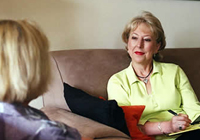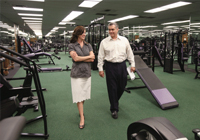Part 2 of 2
One piece of the well-being puzzle that has received little attention—and that will be a central theme of this blog—is how we can use our personality strengths to move closer to our happiness and health goals.
Carl Jung posited that humans use eight thought processes or “cognitive functions” to gather information and make decisions. We each use two functions, the “dominant” (primary) and the “auxiliary” (secondary), with greater ease than the others. I refer to these two thought processes as our individual brain strengths.
Jung’s theory provides the underpinnings of the personality type framework that is best known through the questionnaire, the Myers Briggs Type Indicator. You may already be familiar with the four letter code for your personality type. This framework was developed and incorporated by Isabella Myers and Katherine Briggs in the questionnaire. In recent years experts in this area have focused on Jung’s eight cognitive processes.
Recent research by Dario Nardi, PhD gives us a hint that Jung was onto something. Dr. Nardi at UCLA has conducted electroencephalogram studies on students (who consented to participate) while they were performing a variety of tasks. He looked at the regions of the brain proven by neuroscience to control specific thought processes, such as attending to details, recalling facts, attending to social feedback, and foreseeing the future.
In many cases, the brain regions corresponding to the dominant and auxiliary functions, as anticipated by the students’ personality type, showed more activity. Although there is much more research to be done, this is exciting news.
Clearly personality does not explain all of our behaviors or strengths. And we need to apply what science has already proven whenever appropriate and possible. But this blog is dedicated to bridging the world of standard health behavior science with the innovative world of personality. These discussions will spur further research and help us progress.
So let’s explore the potential for making behavior change easier and more sustainable by applying personality. These discussions need not be limited to personality. Let’s also explore any exciting innovations that come along—especially as the mobile health world unfolds. I look forward to nudging happiness and health habit innovation with the help of engagement and feedback.
Engage With Us

Participants
Join the unique group…

Health Coaches
Apply the unique framework…

Physicians and Health Professionals
Contribute to health behavior innovation

Partners
Collaborate on the application

Employers
Enhance your wellness programs

Get connected and stay up to date